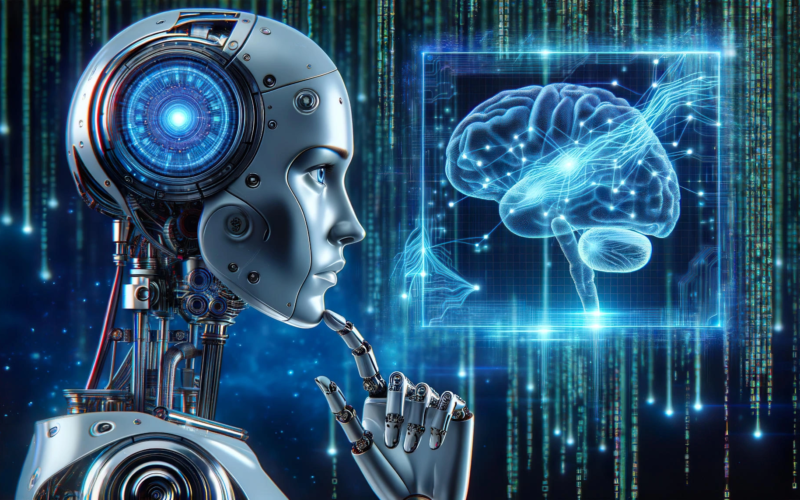Experts are concerned that the emergence of ChatGPT and Gemini is making humans dependent on information and that the brain will gradually become less intelligent and creative.
“The biggest concern in the age of AI is not whether it can harm human creativity or intelligence, because it has already done so,” Robert Sternberg, a psychologist at Cornell University (USA) and author of many groundbreaking studies on human intelligence, told the Guardian.
Fifty years ago, it could take a person hours to compose an article, but AI only takes a few minutes. Tools like ChatGPT, Gemini, Grok allow text to be generated in a minute, while the remaining time is for users to edit the command to their liking.
The Guardian quoted experts as saying that people should “not ask what AI can do, but what it is doing to us”, as some studies show that human intelligence is increasingly declining due to artificial intelligence.
Dr. Michael Gerlich of SBS Swiss Business School (Switzerland) conducted a study in the UK with 666 people and found a correlation between frequent use of AI and critical thinking skills. According to a scientific report published in Research Gate in January, young people who rely heavily on AI tools tend to have lower critical thinking scores than older people and their peers who do not use AI.

Illustration of AI. Photo: SciTechDaily
“It’s great to have everything at your fingertips,” said one participant. “But sometimes I worry about not being able to remember anything. I rely so much on AI that I don’t think I know how to solve certain problems without it.”
Similarly, earlier this year, Microsoft and Carnegie Mellon University (USA) surveyed 319 people who used generative AI at least once a week. The results showed that despite improved performance, these people still felt inhibited in critical thinking and dependent on technology. The research team believes that this could lead to a decline in problem solving without the support of AI.
According to a summary by Frontiers in Psychology, some other surveys indicate that using AI for memory-related tasks can lead to cognitive decline, loss of memory, impaired concentration, and mental health impacts.
The erosion of critical thinking is even more serious because AI algorithms can decide what each person sees on the Internet. “The impact of the Internet, especially social media, on critical thinking is huge,” Gerlich said. “It takes an algorithm four seconds to recommend a video to you. The result? A short, digestible message that doesn’t encourage critical thinking. It gives you information without you having to process it.”
Wendy Johnson, an intelligence researcher at the University of Edinburgh, says she sees this in students every day. Instead of trying to think, some students “let the Internet tell them what to do and what to believe.”
Without critical thinking, it’s harder for people to tell whether the information an AI provides is true or false, trustworthy or fabricated. A 2023 study in Science Advances found that OpenAI’s GPT-3 model “generates understandable and compelling misinformation,” a phenomenon called a false positive — an algorithmic system that provides information that sounds plausible but is actually inaccurate or misleading.
But Dr. Elizabeth Dworak, at the Feinberg School of Medicine at Northwestern University in Chicago, argues that human intelligence is much more complex and is made up of many variables. “People want to point to AI as the bad guy, but that’s not really fair. We can’t just look at one thing and blame it,” Dworak says.
This isn’t the first time new technologies have raised concerns about human intelligence. In the past, many people worried that mobile phones and social media were distracting, or that GPS was making people less able to navigate. Now, AI is helping to solve tasks that require high cognitive abilities, from processing tax returns to providing therapy.
The argument that humans are less intelligent because of technology is drawn from a number of studies. The most famous study is the Flynn Effect, conducted by James Flynn, a philosopher and psychologist at the University of Otago (New Zealand), which shows that IQ scores have increased across generations since 1930. However, the average IQ of a 14-year-old child fell by more than two points from 1980 to 2008 – the early stage of the technology boom.
Admin.


The rise of ChatGPT and other AI tools is reshaping how we approach information and problem-solving. While these advancements save time and increase efficiency, they also raise concerns about the decline of critical thinking and creativity. Many users report feeling overly dependent on AI, which could lead to a loss of essential cognitive skills. As we continue to integrate AI into our daily lives, it’s crucial to reflect on its long-term impact. Do we risk losing the ability to think independently if we rely too heavily on technology?